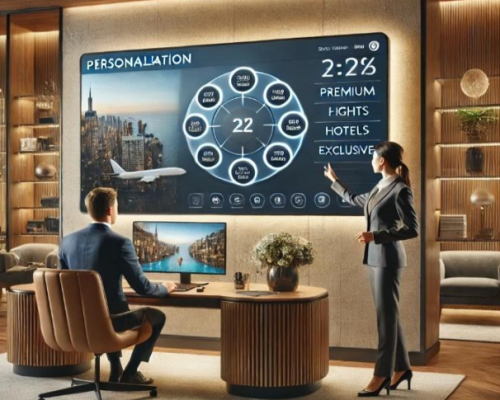Currently, technology enables tourism service providers to be present at every touchpoint with the customer throughout their travel experience. Active guidance by the provider to ensure the fulfilment of tourist expectations is one of the key factors in driving repeat business, especially as loyalty to destinations and even tour operators is becoming increasingly uncommon.
In the inspiration phase of travel, the main challenge lies in captivating the customer with a personalised offer. While access to information is no longer a hurdle today, efforts focus on identifying customer profiles and proactively offering tourism services tailored to their needs. At the same time, sufficient guarantees must be presented to legitimise the promised quality, usually backed by brand reputation and leveraged by other users and consumers who act as advocates for the service.
During service delivery, interaction with customers is constant, and the provider’s ability to react is a necessity. Beyond a willingness to assist, this must rely on effective information management. Therefore, the challenge lies in integrating technologies and solutions that impact the travel experience, encompassing basic services such as transportation and accommodation and complementary tourist activities, both in-person and online, particularly on mobile devices.
Therefore, Attract, Delight, Convert, and Retain to reattract, define the four core pillars around which a comprehensive (360º) strategy revolves. These are the keys to determining the tools to be used throughout the entire travel management flow.

A data-sharing platform enables companies to make more informed decisions, innovate with personalised products and services, and improve operational efficiency by reducing duplication of efforts. Moreover, under clear standards of good data governance, it facilitates regulatory compliance. It incorporates legal certainty into services, providing a competitive advantage by gaining unique insights from collaboration between organisations.
Personalising travellers’ experiences by analysing their preferences and behaviours, optimising resource management such as hotel availability and transportation, and improving coordination among stakeholders like agencies, hotels, and destinations are just a few examples of how shared data spaces can be applied in tourism activities.
The European CyclOps project aims to provide automatic, secure, interoperable, and reliable management, governance, and maintenance of the entire data lifecycle for large volumes of data generated from heterogeneous distributed sources. This enables data sharing and exchange within data spaces.
As in other industries, tourism accepts and assumes this is the path and challenge.

